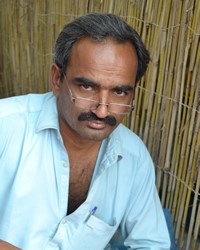The Sindhi of Saudi Arabia are part of a much larger Sindhi people group. Sindhis are the second-largest ethnic group in Pakistan. The Sindhi, named after the Sindhu (Indus) River, are also said to be one of the oldest people groups in Pakistan. Most of them have lived there for centuries and call themselves the pukka, or "real," Sindhi. Some have traced their origin back to the Arab invaders who introduced Islam to Pakistan in 711 A.D.
Prior to 1947, Muslim and Hindu Sindhis lived together in the same region. Today, however, most of the Hindu Sindhis live in India, and most of the Muslim Sindhis live in Pakistan. Still, a smaller number of these Muslims spilled over into neighboring Afghanistan. Other Sindhi are scattered all over the world, from the oil fields of Oman, Saudi Arabia, and the UAE to the business centers of Hong Kong and Singapore. These are the fortunate few; most of the Muslim Sindhis who remain in their Pakistani and Afghan homeland are less prosperous.
Sindhis often work in the oil fields of Saudi Arabia, but they can also be merchants or businessmen. They are well-established, and many shops, restaurants, and cultural venues cater to Sindhis and other Pakistanis. There are Pakistani schools in Saudi Arabia.
The family is the basic unit of Sindhi society, with the male head being the authority. Generally, Muslim Sindhi women stay home, leaving only for special occasions such as visiting the temple or calling on relatives. They wear long black dresses and cover their faces with heavy veils. The Sindhis traditionally do not marry outside of their own social classes. They prefer marriages between first cousins, and long engagements are common. The wedding ceremony includes a reading from the Koran and is performed by a local Muslim teacher.
Sindhis in the Gulf states are Sunni Muslims. Most have no clear understanding of their Muslim faith and still believe in "folk spirits." Before 1947, many Hindu and Muslim practices were combined. For example, it was not uncommon for both Hindus and Muslims to venerate the same saint. Today, the practice of saint worship still persists, even when they move to other countries. Some are Sufis.
Two religious ceremonies are closely related to birth: naming the child and shaving its head. At the naming ceremony, the father whispers, "Allah is great," into the child's ear so that Allah's name is the first thing the child hears. The head-shaving ceremony is a symbolic act of sacrifice. The young child's head is shaved, and the hair is buried along with the bones of a sacrificed goat.
The Muslim Sindhis need the chance to put all their trust in Jesus Christ, sent by the Living God to bless all nations. They also need abundant rain for their crops so they can have an adequate harvest.
Pray for the gift of faith to come to Muslim Sindhi family and community leaders so they can open the door for a movement to Christ.
Pray for the Lord to thrust out Holy Spirit-anointed workers to the Muslim Sindhis in Saudi Arabia.
Pray for a soon-coming movement to Christ among the Sindhis worldwide that will bless them for eternity.
Scripture Prayers for the Sindhi in Saudi Arabia.
https://en.wikipedia.org/wiki/Pakistanis_in_Saudi_Arabia
https://gulfnews.com/world/gulf/saudi/pakistani-expat-worker-numbers-in-saudi-arabia-surge-to-264-million-as-ties-thrive-1.95559269
https://blog.wasalt.sa/en/pakistanis-in-riyadh/
| Profile Source: Joshua Project |











